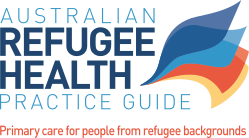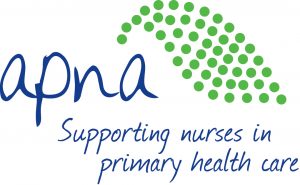Settlement support
Table of contents
Overview
Prior to leaving country of departure Refugee and Humanitarian Programme entrants may attend the Australian Cultural Orientation (AUSCO) Program, a five-day course that covers a range of topics related to resettling in Australia.
On arrival in Australia, Refugee and Humanitarian Programme entrants (visa subclass 200, 201, 202, 203 and 204) are provided support through the Australian Government’s Humanitarian Settlement Program (HSP) for 6–12 months. HSP providers work with clients to identify their needs and develop a case management plan to meet initial settlement needs, including:
- meeting people at the airport
- assistance with finding suitable longer-term accommodation
- providing an initial food package and start-up pack of household goods
- assistance to register with Centrelink, Medicare, health services, banks, schools and English classes
- orientation to life in Australia, including health, education, employment and Australian laws and culture
- assistance to fulfil the requirements of health undertakings.
The HSP provides three tiers of support based on client need. Tier 1 provides support to people with the lowest needs, while people in Tier 3 may be impacted by multiple and complex barriers to engaging with appropriate supports. The HSP Case Management Guidelines describe the tiers as follows:
- Tier 1: ‘Clients generally present with the knowledge and skills required to settle into their new community with minimal assistance from a Service Provider…for example, a client with basic English who has some work experience, but requires some settlement services to assist in connecting to mainstream services, orienting to Australia and navigating employment pathways’.1 (p5)
- Tier 2: ‘Clients are likely to have experienced high levels of poverty, trauma or health impacts arising from persecution, discrimination, displacement, nutritional deprivation or inadequate medical care…for example, a client with little to no English language proficiency who has been displaced and unemployed for several years. The majority of Clients in the HSP are likely to be identified as Tier 2’.1 (p5)
- Tier 3 (Specialised and Intensive Services): ‘Clients may display an inability to independently engage with appropriate supports and may be impacted by multiple and complex barriers…for example, a client presenting with significant mental health issues resulting in disengagement with mainstream support services and social isolation’.1 (p6) Tier 3 requires written approval of Department of Social Services (DSS) and has wider scope than the other two tiers as follows:
- With approval from the DSS people who were granted a protection visa in Australia may access specialised intensive support (visas include subclass 866, 785, 449, 786, 790).
- People may access this support for up to 5 years after arrival (or are 5 years post visa grant, for those who applied for asylum in Australia).
- Anyone can refer a person using the approved referral form, which is available on the DSS website.
- A client who has previously had HSP services may re-enter the program.
For further information see Department of Social Services HSP.
People who are ineligible for HSP may be able to access settlement support through community programs delivered through Migrant Resource Centres or other community organisations funded by Settlement Grants Program.
Proposers
People who enter Australia with a Special Humanitarian Programme visa, a subclass within the Refugee and Humanitarian Programme (visa subclass 202), must be proposed by an Australian citizen, permanent resident of Australia, eligible New Zealand citizen or an organisation operating in Australia.2 (p4)
Proposers are responsible for travel arrangements to Australia and providing settlement support when people arrive in Australia. However, often proposers ‘have only recently settled in Australia and may overestimate their capacity to provide settlement support.’2 (p5) Under the HSP contract, based on need, the ‘Service Provider must deliver the settlement services to a Client where their Proposer is unable to provide support.’2 (p9)
Support to learn English
Adult Migrant English Program (AMEP) provides up to 510 hours of foundational English language tuition and settlement skills.3 See AMEP providers.
The Australian Government announced a new model for AMEP commencing July 2017 which provides access to a capped program of up to 490 hours of additional tuition for clients who have not reached functional English after completing their legislative entitlement of 510 hours. The Special Preparatory Program provides additional hours of tailored English classes to eligible humanitarian entrants in recognition of their greater learning and support needs arising from difficult pre-migration experiences, such as torture or trauma, and/or limited prior schooling.4 Read more about DSS support to learn English.
The Skills for Education and Employment program provides language, literacy and numeracy training to eligible job seekers, to help them to participate more effectively in training or in the labour force.5
Approach to care
Patients may ask for support and advice for matters beyond medical matters. In early settlement people may not have large networks. Therefore they may ask people they trust for advice and support, including GPs, nurses or other members of the health team.
Consider a case conference with the patient’s HSP caseworker or a referral to a HSP provider if your patient has arrived through the Refugee and Humanitarian Programme in the past 12 months, and is experiencing difficulties in accessing:
- English language classes
- housing
- income support
- employment
- social support
- advice on legal or migration matters
- adequate household and personal effects
- support for complex medical follow-up
- schooling for their children
- childcare and parenting support.
For patients who have multiple complex needs and have arrived in Australia in the past 5 years (or are 5 years post visa grant, for those who applied for asylum in Australia) consider referral to HSP Specialised and Intensive Services.
Practice tip: Consider streamlining the referral process by developing a list of local support agencies including phone numbers and addresses.
Considerations
People seeking asylum cannot access HSP. For more information about support services for people seeking asylum see State and territory referrals and Asylum seekers.




